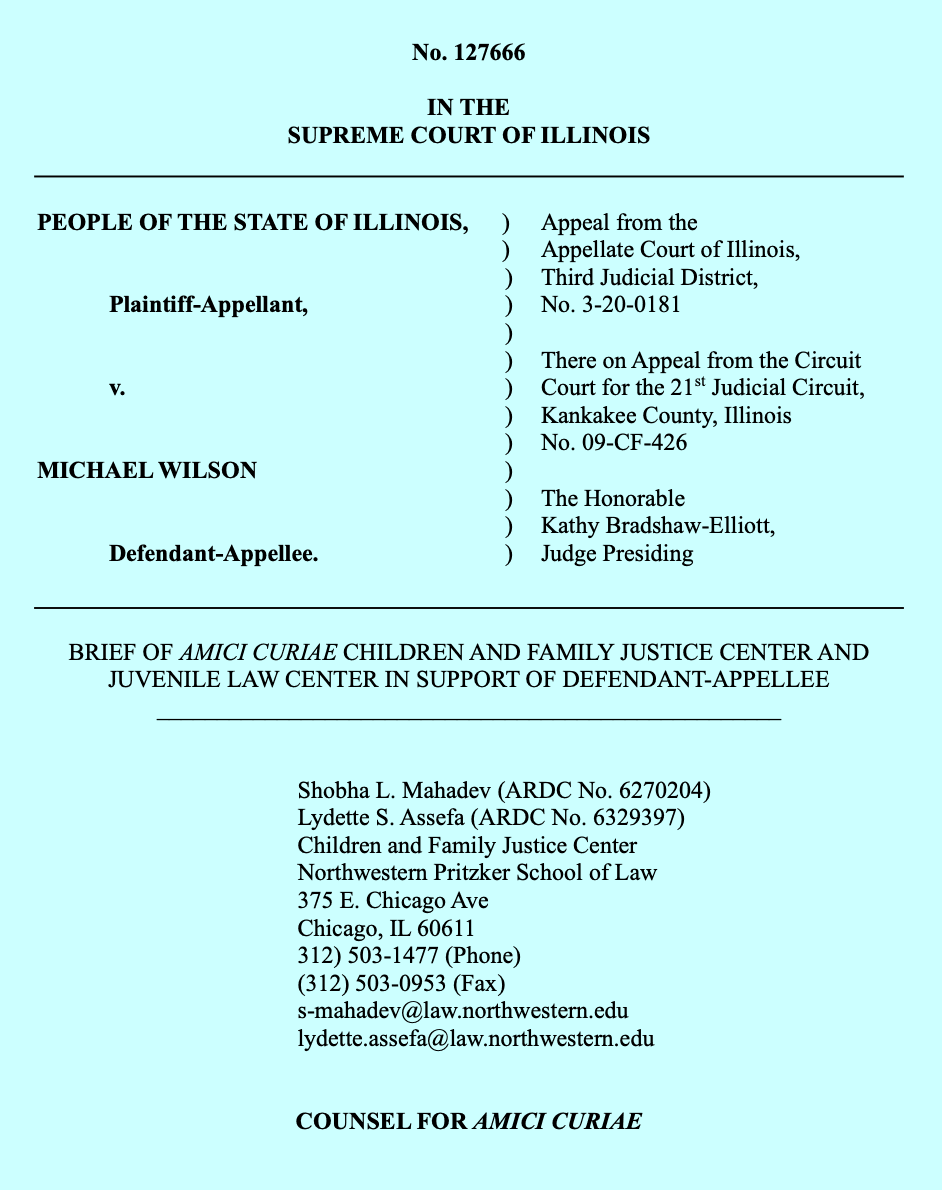
Summary of Argument
In Miller v. Alabama, the United States Supreme Court ruled that mandatory life without parole sentences are unconstitutional for youth who were under 18 at the time of their offenses under the Eighth Amendment’s prohibition on cruel and unusual punishment. 567 US 460, 465 (2012). The Court, relying on the same underlying scientific research used to bar the death penalty for youth, held that children are less culpable than their adult counterparts because of their immaturity, impetuosity, susceptibility to peer influence, and greater capacity for change. Id. at 465, 470–72. Further research now indicates that young people retain these characteristics beyond age 18. Because these emerging adults possess the same adolescent characteristics that the Supreme Court has determined reduce criminal culpability, mandatory life without parole sentences for this population are also disproportionate under the proportionality clause of the Illinois Constitution. Indeed, in recognition of the current developmental research, jurisdictions around the country are increasingly raising the age of adulthood above age 18 in situations that implicate the developmental characteristics relied upon in Miller. This trend challenges antiquated sentencing practices that wrongly turn on the arbitrary boundary of age 18. Further, as courts around the country have considered age and its attendant characteristics in sentencing even older adolescents, they have consistently found them less deserving of the harshest available penalties. Culpability is further diminished for individuals such as Antonio House who were convicted based on an accountability theory of liability and had minimal participation in the offense. Based on these considerations, this Court should affirm the Appellate Court’s judgement that Antonio’s mandatory life sentence was unconstitutional and remand his case for a new sentencing hearing.